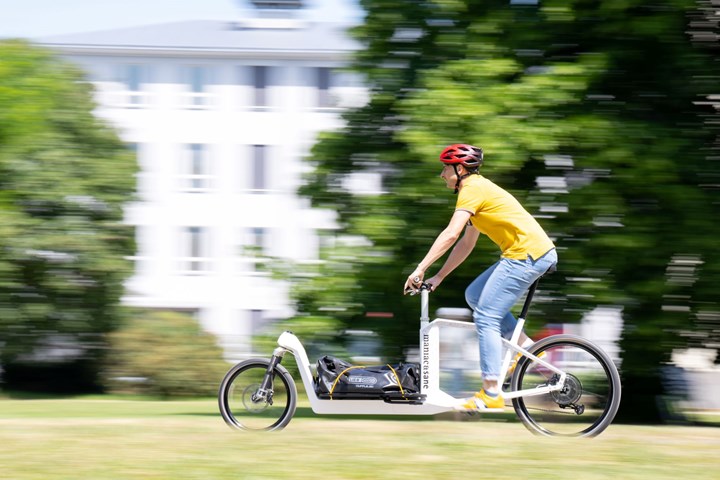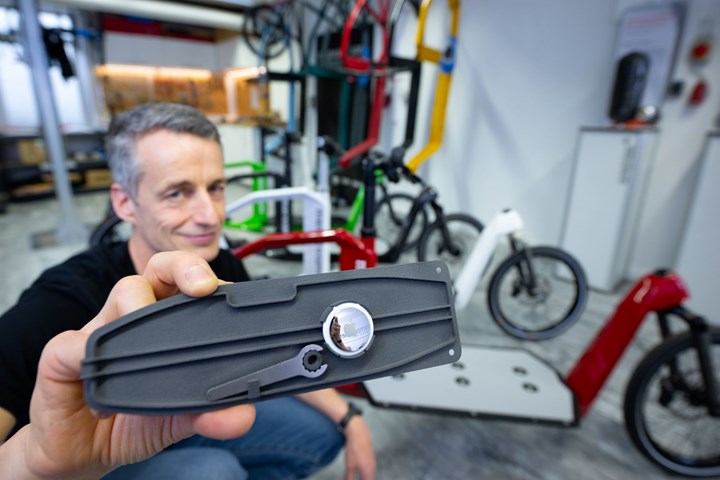Ultralight Cargo Bikes Leverage 3D Printed Parts
Carbon fiber bicycle maker Maniac & Sane developed a lightweight carbon fiber cargo bike with 3D printed components using Evonik’s Infinam PA12.
Share
Read Next
The German bicycle manufacturer Maniac & Sane has developed lightweight, carbon fiber bicycles aimed at the European trend in cargo bikes for sustainable urban transportation. The cargo bike’s frame structure includes a lamp housing and Airtag mount as integral components, which are 3D printed from Evonik’s Infinam PA12 nylon. Airtag is an anti-theft device from Apple.

Cargo bikes have seen increased sales in Europe in recent years.
Photo Credit: Evonik
"The challenge was to find the right technology and material for Maniac & Sane's cargo bike components. Considering the requirements: lightweight, functional components that were break-resistant and weather-resistant – and all that in a filigree design, the obvious choice was powder-based 3D printing and the Infinam PA12 material from Evonik," says Markus Albrecht, division manager of additive manufacturing for Kegelmann Technik GmbH, which worked with Maniac & Sane to develop the bikes. The components were printed using selective laser sintering (SLS) technology.

Martin Fleischhauer, managing director at Maniac & Sane, with an integral AirTag mount made from Evonik's glass bead-filled Infinim PA12 3D printing material.
Photo Credit: Evonik
Related Content
-
BMW Expands Use of Additive Manufacturing to Foster Production Innovations
The BMW Group is manufacturing many work aids and tools for its own production system using various 3D printing processes, with items such as tailor-made orthoses for employees, teaching and production aids, and large, weight-optimized robot grippers, which are used for such things as carbon fiber-reinforced polymer roofs and entire floor assemblies.
-
From Polymer Tooling to Metal Production Via 3D Printing
As Azoth has adopted new additive manufacturing technologies, its work has transitioned from tooling to production parts for automotive, medical and defense.
-
How AM Enables Cobot Automation for Thyssenkrupp Bilstein (Includes Video)
The shock absorber maker has responded to its staffing shortages through extensive use of collaborative robots. In-house 3D printing makes this possible by providing the related hardware needed to complete the cobot-automated cells.












